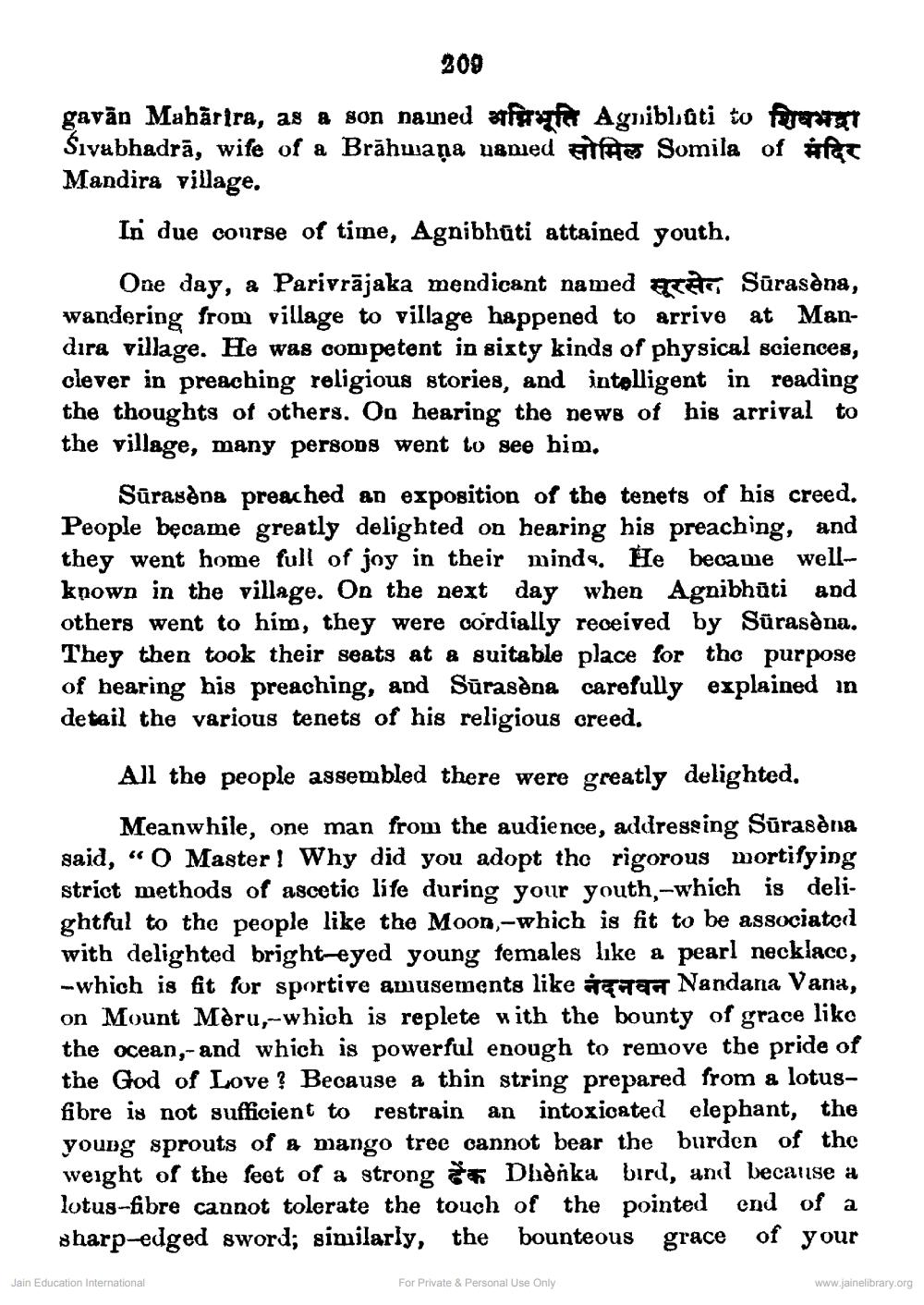________________
209
gavān Mahārtra, as a son named aff Agniblati to farmer Sivabhadra, wife of a Brāhmaṇa named Somila of t
Mandira village.
In due course of time, Agnibhūti attained youth.
One day, a Parivrājaka mendicant named a Sūrasèna, wandering from village to village happened to arrive at Mandıra village. He was competent in sixty kinds of physical sciences, clever in preaching religious stories, and intelligent in reading the thoughts of others. On hearing the news of his arrival to the village, many persons went to see him.
Sūrasèna preached an exposition of the tenets of his creed. People became greatly delighted on hearing his preaching, and they went home full of joy in their minds. He became wellknown in the village. On the next day when Agnibhūti and others went to him, they were cordially received by Surasèna. They then took their seats at a suitable place for the purpose of hearing his preaching, and Sūrasèna carefully explained in detail the various tenets of his religious creed.
All the people assembled there were greatly delighted.
Meanwhile, one man from the audience, addressing Sūrasèna said, "O Master! Why did you adopt the rigorous mortifying strict methods of ascetic life during your youth,-which is delightful to the people like the Moon,-which is fit to be associated with delighted bright-eyed young females like a pearl necklace, -which is fit for sportive amusements like a Nandana Vana, on Mount Meru,-which is replete with the bounty of grace like the ocean,- and which is powerful enough to remove the pride of the God of Love? Because a thin string prepared from a lotusfibre is not sufficient to restrain an intoxicated elephant, the young sprouts of a mango tree cannot bear the burden of the weight of the feet of a strong Dhènka bird, and because a lotus-fibre cannot tolerate the touch of the pointed end of a sharp-edged sword; similarly, the bounteous grace of your
Jain Education International
For Private Personal Use Only
www.jainelibrary.org




